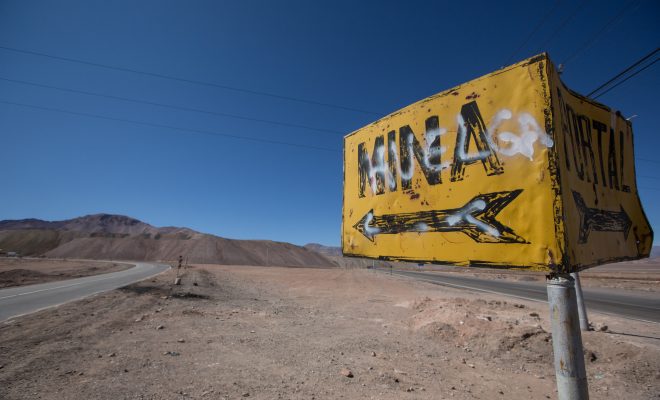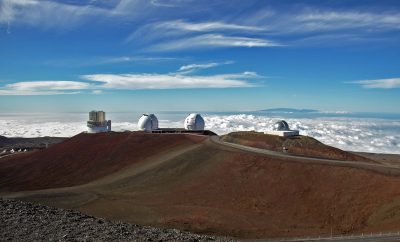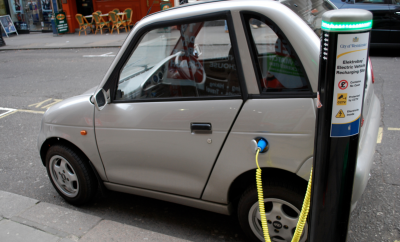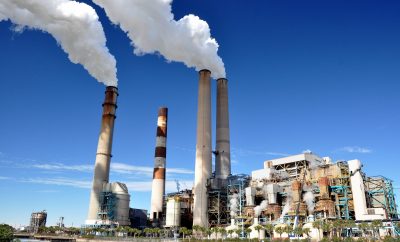 "Mine, Strike" Courtesy of Maina Kiai : License (CC BY 2.0)
"Mine, Strike" Courtesy of Maina Kiai : License (CC BY 2.0)
World
How El Salvador Became the First Country to Ban Metal Mining
On March 29, El Salvador became the first country in the world to ban metal mining. The ban passed through the El Salvador unicameral legislature with support from a sweeping coalition and is favored by nearly 80 percent of the El Salvadorian population. In spite of the overwhelming support for the ban, the anti-mining movement started with a handful of grassroots groups determined to push back against the country’s historical devotion to “pro-business” policies.
El Salvador: An Unlikely Contender
Like many Latin American countries, El Salvador opened its doors to multinational companies in the early 1990s in the hope that an influx of foreign investment would help steady its newly reformed political system. Entrance into the globalized economy appeared to be the best option for a country emerging from a long and brutal civil war. The region saw a spate of political pushbacks against neoliberal economic policies, but El Salvador remained devoted to the globalized economy.
Following the 1992 peace accords, the right-wing, pro-business Nationalist Republican Alliance (NRA) controlled El Salvador for 17 years. During this time, foreign money, much of it from mining, flooded into El Salvador. In 2001, the conservative government adopted the U.S. Dollar as its official currency. Officials pegged their currency to the dollar with the intention of stabilizing the economy and making El Salvador a more attractive destination for international investors.
Candidates from the socialist Farabundo Martí National Liberation Front (FMLN) have won the past two presidential elections but have largely continued the economic strategies initiated by the NRA. The FMLN leaders have not employed the kind of “anti-imperialist” rhetoric that has often been used by other socialist leaders in the region. When Salvador Sánchez Cerén, a former leftist guerilla, took power in 2014, he promised budget cuts and to maintain a close relationship with the United States. Sánchez’s predecessor and fellow FMLN member, Mauricio Funes, ruled the country as a centrist.
It is surprising that a country so roundly committed to foreign investment and the global economy would be the one to lead a charge against multinational metal mining corporations.
From Grassroots to Mainstream
Not long ago, El Salvador was actively courting multinational mining operations. After the civil war, the government began trying to rebuild the large-scale mining industry that had died out when conflict erupted in 1980. When global gold prices began to climb in the early 2000s, El Salvador received a flurry of exploration permit applications.
After some exploratory drilling, Pacific Rim Mining Corporation proposed plans for a mine named El Dorado to be built in the basin of the Rio Lempa–El Salvador’s primary source of drinking water. According to Public Citizen’s Global Trade Watch Division, El Dorado would use two tons of cyanide and 900,000 liters of water a day to extract over 1.4 million ounces of gold in about four years.
Rapid industrialization and population growth in the 1990s caused extreme environmental degradation. By the early 2000s, over 90 percent of El Salvador’s ground water was chemically contaminated and no amount of boiling, filtering, or chlorination would make it potable. The prospect of a cyanide and water intensive mine on the crux of the country’s primary source drinking water was, for many, too much to stomach. Locals feared the mine’s copious water consumption would suck up supply and that the cyanide would render it undrinkable in the process.
As word of the mine spread, groups began to form and resist the El Dorado mine and mining in general. By 2005, the grassroots movement had turned national. Local and international groups united to form The National Roundtable Against Metal Mining in El Salvador (La Mesa), and the population’s support for a metal mining ban had grown.
In May 2007, El Salvador’s anti-mining movement gained one of its most powerful allies–the Catholic Church. In response to anti-mining statements from archbishops in neighboring countries, the El Salvadorian Catholic Church publicly denounced mining, claiming “no material advantage can be compared to the value of human life.” By October of the same year, polls showed 62 percent of the population opposed metallic mining in El Salvador.
The conservative NRA party had previously blocked attempts by the FMLN to pass a legislative ban on metallic mining but public support for the ban had become irresistible. In March 2008, NRA President Antonio Saca instituted a nationwide moratorium on metal mining permits.
The Backlash
Though this moratorium remained in place until the passage of an anti-mining law last month, the presidential moratorium wasn’t permanent and could have been lifted at any moment. The situation was precarious.
Pacific Rim and other mining cooperations quickly filed legal complaints against El Salvador. These suits quickly devolved into drawn-out legal battles, in which mining corporations demanded hundreds of millions of dollars in compensation from one of the poorest countries in Latin America.
As these compensation claims crawled through World Bank tribunals, pro-mining operatives launched violent attacks against the anti-mining movement. From 2009 to 2011, at least four anti-mining activists were murdered. Rather than silencing the movement, these acts of violence galvanized support for the ban.
In late 2016, the World Bank slapped down Pacific Rim’s claim to compensation paving the way for a permanent ban.
A Future Without Mining
Over the course of a few years, the El Salvadorian government’s stance on mining underwent a 180-degree turn. Forces that once backed the mining lobby were forced to concede to a groundswell of opposition. As the effects of environmental degradation and exploitation become more apparent, El Salvador’s grassroots movement provides hope for similar ones around the world.








Comments